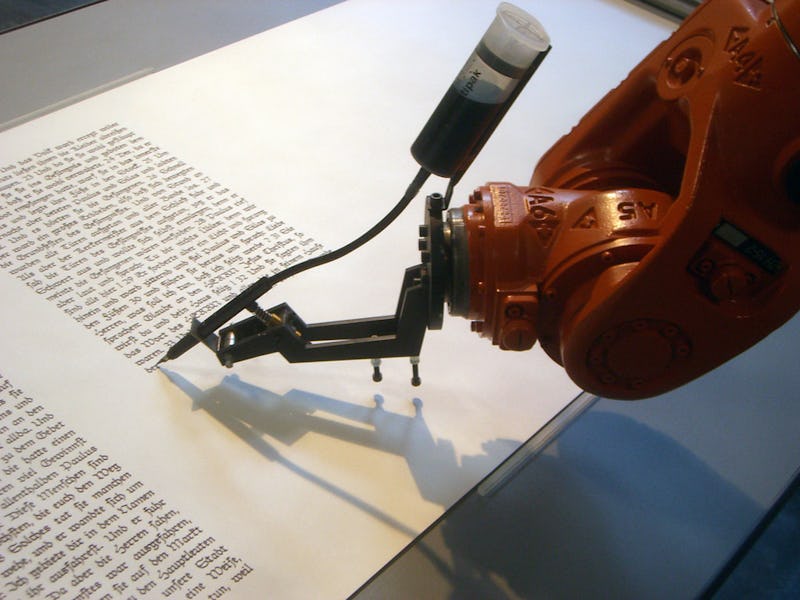8 Books About the Distant Future to Read in the Near Future
Today is the best time in history to be reading about tomorrow.

The futurism industry is booming and the competition has been good for consumers of new ideas. Where books about the distant future once focused on outlandish scenarios, positing theories unsupported by data or true argumentation, current examples of that genre tend to traffic in trend parsing, science, and historical context. The modern boom in smart prediction — arguably set off by Peter Singer’s A Darwinian Left: Politics, Evolution, and Cooperation in 2001 — will turn bookstore shelves (to the degree to which they still exist) into windows on tomorrow as publishers rush to put out the most definitive bit of prognostication in 2017.
The coming bumper crop of deep thoughts on the deep future will not only contain remarkable efforts by remarkable writers, it will serve as a critical curriculum for those looking to prepare themselves for massive political, social, and technological shifts. Reading about the future is no longer a simple intellectually exercise; it’s an act of self-preservation. Also, it’s fun when the books are this exciting and the ideas are this game-changing.
Whether you’re into space travel, data, engineering, or social engineering, there’s a must-read coming for you.
1. Beyond Earth: Our Path to a New Home in the Planets by Charles Wohlforth and Amanda R. Hendrix, Ph.D.
Hendrix and Wohlforth aren’t shy about their skepticism of colonizing Mars. Instead, they argue in Beyond Earth, we should be setting our sights on Saturn’s moon Titan. If we want to live elsewhere in the solar system without needing to rely on constant support from Earth, Titan’s atmosphere, gravity, and weather will make life a lot easier.
2. Weapons of Math Destruction by Cathy O’Neil
Algorithms control many aspects of our lives, and O’Neil provides a thorough explanation of how they work in Weapons of Math Destruction. She highlights how algorithms can have racial biases, and how they can be “black boxes” that have the potential to ruin lives.
3. A Field Guide to Lies: Critical Thinking in the Information Age by Daniel J. Levitin
Levitin provides a thorough guide to mentally fact checking information, whether it’s an article in The New York Times or fake news in your newsfeed. A Field Guide to Lies teaches you to think critically about the plausibility and reasoning behind information, a skill that will be critical for assessing the President-elect’s tweets.
4. The Unnatural World: The Race to Remake Civilization in Earth’s Newest Age by David Biello
Welcome to the Anthropocene, the era when humans wreak havoc on the planet. But Biello’s The Unnatural World isn’t all doom and gloom. Rather, it profiles some of the smart folks trying to fix the climate, bring back extinct species, and clean up pollution.
5. The Road Taken: The History and Future of America’s Infrastructure by Henry Petroski
Donald Trump wants to spend $1 trillion on infrastructure, but fixing our nation’s roads and bridges won’t be easy. Petroski explores the history of American infrastructure and the impact of funding on its future, making The Road Taken a perfect primer for the impending battle over the infrastructure budget.
6. Whiplash: How to Survive Our Faster Future by Joi Ito and Jeff Howe
Ito, the head of MIT’s Media Lab, and Howe, a journalist, lay out the tools we all need to navigate our rapidly changing, high-tech world. Whiplash emphasizes experimentation, diversity, improvisation, and responsible innovation, with examples from the Media Lab.
7. The Signals Are Talking: Why Today’s Fringe Is Tomorrow’s Mainstream by Amy Webb
If you want to predict what will be the next big thing in technology, you need to pay attention to what is happening at the fringes of technology and culture. That’s the premise of Webb’s book, a how-to guide for developing an intuition for what’s next (and what’s not), and what to do to prepare for it.
8. Children of the New World: Stories by Alexander Weinstein
Weinstein’s 13 stories are reminiscent of Black Mirror’s unsettling imaginings of the future. One story features a family that spends so much time online that the teenage son’s trip outside is considered a rebellious act. Other stories grapple with robotics, depleted natural resources, and virtual children. Maybe get this one in paperback.